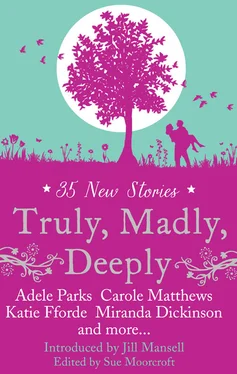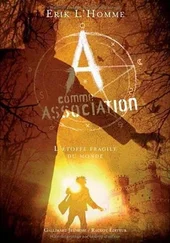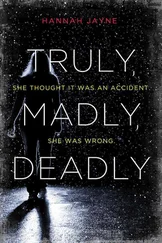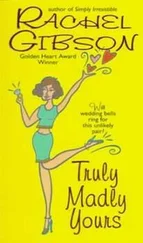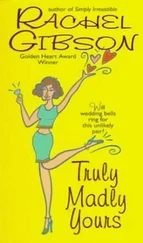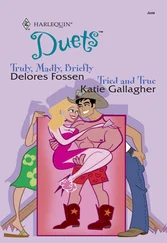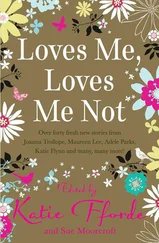He was old, in his ninetieth year, and he was dying. Everybody knew that, his wife most of all. She’d loved him since they’d first met: she had been sixteen and he more than twice her age. Her father had been a parish councillor and he’d come to the house about a planning matter. He was a farmer; sternly handsome, smiling rarely. He’d proposed within six months and she’d accepted gladly.
‘I’ll make some tea,’ she said, not that he would understand. He’d heard nothing for days apart from internal voices he would occasionally converse with, voices that belonged to people she had never known. She left the dining room and went into the kitchen –he’d been brought downstairs and the dining room had been turned into a bedroom.
Through the window, the modern bungalow –built for their son when he took over the management of the farm –throbbed with life. Her great grandchildren, two little girls, were spending the summer there, and were already playing on a swing in the garden. Dorothy, her daughter-in-law, was hanging washing on the line and Francis, the ‘Crown Prince’ as Robert sometimes called him in a rare moment of humour, was staring at the house where he’d been born as if wondering how his father was today. At some time this morning, he’d come over and enquire about his health.
She was tempted to wave, but Francis would come immediately out of a sense of duty and she would sooner he didn’t. He would argue that his father should be in hospital.
‘He loathes hospitals,’ she would insist. ‘He’d far sooner be at home.’
She made tea and took two digestive biscuits out of the tin –she’d make herself a proper breakfast later –and took them into the dining room where, to her utter astonishment, her husband was singing an old war song.
‘There’ll be bluebirds over…’ he sang, followed by unrecognisable murmurings.
‘The white cliffs of Dover,’ his wife offered. Then she sang the line in full, ‘There’ll be bluebirds over, the white cliffs of Dover.’
She was even more astonished when he opened his eyes and smiled at her, a brilliant, open, truly gorgeous smile that was totally unfamiliar.
‘Hello,’ she said, taken aback, overwhelmed by the feeling of aching sadness that she would shortly lose him.
‘Hello,’ Robert MacEvoy exclaimed, almost exactly seventy years earlier. It was late September, the war was just over a year old –it had only been predicted to last six months. He’d just woken from his afternoon nap in the hospital of an RAF camp on the Essex coast and she was standing beside his bed with a cup of tea. She wore a blue and white uniform. A new nurse!
She laughed and put the tea on his bedside cabinet. ‘Hello,’ she cried, adding, ‘You’ve got a lovely smile.’
‘You’ve got a lovely everything.’ She was outstandingly pretty, with dark curly hair and eyes the colour of forget-me-nots. He was twenty-one and had never spoken so frankly to a girl before –flirtatiously almost. ‘What’s your name?’
‘Moira. Moira Graham.’ She made a face, squinting her eyes and wrinkling her nose. ‘What’s yours?’
‘Robert. People call me Rob.’
‘Well, I shall call you Robert, if you don’t mind.’
‘I don’t mind a bit. Will you be at the dance tonight?’ Another first for him; virtually asking a girl for a date.
‘I will indeed. Shall I save the last dance for you?’ She spoke in a deep sultry voice like Marlene Dietrich while fluttering her eyelashes.
He nodded. ‘As well as the first and all the dances in between.’
‘There’s just one thing, Robert,’ she said.
‘And what’s that, Moira?’
‘Have you forgotten you have a broken leg? It’s why you’re in hospital.’
He looked down at his feet protruding from under the blanket. The right one was heavily plastered, leaving only his toes bare. His ankle was also broken and his knee shattered.
‘I hadn’t forgotten, no. I thought we could sit the dances out. You can take me in my wheelchair.’
She looked serious for a change. Perhaps she felt the same as he did; that something remarkable and truly wonderful had occurred.
‘Oh, all right, so we’ll sit the dances out.’
The dance was being held in the canteen, the tables folded in a corner, piled on top of one another. He could limp a bit, his wheelchair was outside, and they were holding hands and sitting on one of the benches tucked against the walls. He was keeping his leg well out of the way, not so much bothered that someone would fall over it but that they would stand on his unprotected toes. The big room was crowded and the band played ear splittingly loudly.
‘What happened to you?’ she asked.
‘My plane crashed on landing,’ he said simply. ‘I was the rear gunner and thrown forward. Broke half a dozen bones. We’d taken a few hits over Berlin. It had needed a wing and a prayer to get us home.’
She shuddered and squeezed his hand. ‘Poor Robert,’ she whispered. ‘It must have been terribly painful.’
Robert shook his head. ‘I was knocked unconscious straightaway. I woke up in hospital, pleased to find I was alive and all in one piece. They sent me here to recuperate. Apparently, the hospital has a great reputation –it’s bound to improve with you there.’
‘I only recently passed my final exams. This is my first week as a nurse.’ She laid her head on his shoulder and began to croon ‘There’s A Boy Coming Home On Leave’ along with the band’s singer, a blonde in a tight red sequin dress.
Couples shuffled past locked in each other’s arms, even though they may have only met that night. There was a war on: Dunkirk was still painfully fresh in their memories, bombs were dropping all over Britain, Germany occupied several European countries, ships were being sunk. Life was cheap and thousands had already died. It meant that people lived for today and to hell with tomorrow.
It was hot in the canteen and his leg was itching madly. He wriggled uncomfortably.
‘What’s the matter?’ she asked.
‘I’d pay five quid to be able to scratch my leg,’ he groaned.
‘When’s the plaster due to come off?’
‘Another three weeks.’
She stiffened. ‘Will you be sent somewhere else?’
He shrugged, unsure. ‘I’m supposed to spend three months convalescing. Whether they’ll leave me here, I’ve no idea.’ He still suffered excruciating headaches.
His hand was squeezed again. ‘Let’s hope that they will.’
He’d been born in Kent when his mother was in her late forties and her other children had grown up and left. He’d been an unpleasant surprise and she had no love left for him. his father, a farmer, spent little time at home. Robert had sometimes wondered what life was for.
And now he knew. It was to meet Moira. She was meant for him and he for her. Both realised that after just a few magical, dreamlike days.
What good luck it had been that his plane had crashed when it had and with him as the only one seriously injured. He wouldn’t have wanted his good fortune to come as a result of a tragedy for others. He was in love, they were in love, and every day was a miracle.
‘Will you marry me?’ he asked when they’d known each other a fortnight.
‘Of course,’ she smiled back. ‘But do we really need a piece of paper to prove we love each other? We’re already married in spirit, if not in law.’
She was so familiar to him it was as if they’d known each other all their lives.
The day after the plaster was removed from his leg, they made love. For both it was the first time. Moira laughed a lot and cried a bit at their initial fumbling attempts to do it properly.
They chose the private ward of the hospital, the one with only two beds reserved for officers, empty now. The door was locked but they still worried. There were only three patients in the main ward: the other two were asleep. But Moira had been left in charge and if someone came and there was no sign of her, there’d be hell to pay. And if someone came and discovered what they were up to…!
Читать дальше
